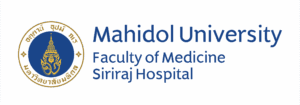Director:
Associate Professor Cholavech Chavasiri, MD; E-mail cholavech.cha@mahidol.ac.th
Attending staff :
Associate Professor Witchate Pichaisak, MD
Associate Professor Areesak Chotivichit, MD
Associate Professor Surin Thanapipatsiri, MD
Associate Professor Chatupon Chotigavanichaya, MD
Sirichai Wilartratsami, MD
Panya Luksanapruksa, MD
Monchai Ruangchainikom, MD
Ekkapoj Korwutthikulrangsri, MD
Honorary advisor : Clinical ProfessorEmeritus Amnuay Unnanuntana
Introduction
The Spinal unit was established by Clinical ProfessorEmeritus Amnuay Unnanuntana, MD, in collaboration with Associate Professor Cholavech Chavasiri, MD, who managed personnel, facility, and established effective team work. Caring for patients with spinal cord injury is complex, because spinal cord is an important and delicate organ that even a slight injury can lead to a variety of issues. Treatment can be lengthy and expensive, and ineffective treatment can lead to more complications, higher degree of disability, psychological issues, and non-productive live both within the family and society. The Spinal Unit was first opened for service in 1995. Using team work approach and providing well-coordinated care with both internal and external parties, we have continually advanced our services and became the first leading center to provide care for patients with spinal cord injury in Thailand and Asia-Pacific.The Spine Unit is recognized for excellence in patient care, research and scholarship, and education for medical personnel. Our faculty members and staff present their scholarly work in both domestic and international conferences on a regular basis.
Clinical service
The Spinal unit has a modern working structure using interdisciplinary approach. We use team meetings to establish a well-coordinated and focused treatment plan. The treatment team also meet withpatients and caregivers for discharge planning. We provide counseling and educationin preparation for discharge, and patient can enroll in various training programs such as learning to live independently (Independent Living Unit) or learning to re-enter society (Free Bird Unit). We have a follow-up clinic on the first and third Thursday of every month, with services provided by an interdisciplinary team of physicians, nurses, physical therapists, occupational therapists, and psychologists. We continue to follow-up with more than 90% of our patients through the clinic, and also contact them though mail and telephone after discharge. In addition, we have a consultation system that is available 24 hours/day, conduct home visit both before and after discharge, peer support group for patients to share experience and exchange information, and a program for vocational training in collaboration with private sectors. Our comprehensive approach to treatment enables patients to be able to function more independently and continue to be productive members of society.
Research interest
To ensure effective care, we have used modern technology to develop inventions that help patients to overcome barriers in daily life. For example, the Departments of Orhopaedic Surgery, Department of Rehabilitation Medicine, and a Japanese university collaborated to develop Siriraj stand-up wheelchair to ensure that patients can have access to equipment that meet international standards, yet still affordable.The Faculty of Medicine at Siriraj hospital received a patent for this invention in 2005. We are also interested in investigating the use of environmental control system to enable patients with severe disability to function within their environment.
At present, the mortality rate in patients with spinal cord injury who received treatment from the Spinal unit is less than 1%, which is comparable to mortality rate in developed countries internationally. Siriraj Spinal Unitis the first treatment center in Thailand and South East Asia that offers complete care for patients with spinal cord injury using interdisciplinary team consisting of highly-qualified personnel. Therefore, we are able to provide quality care and have the same level of research and scholarships that are comparable to other develop countries internationally.


